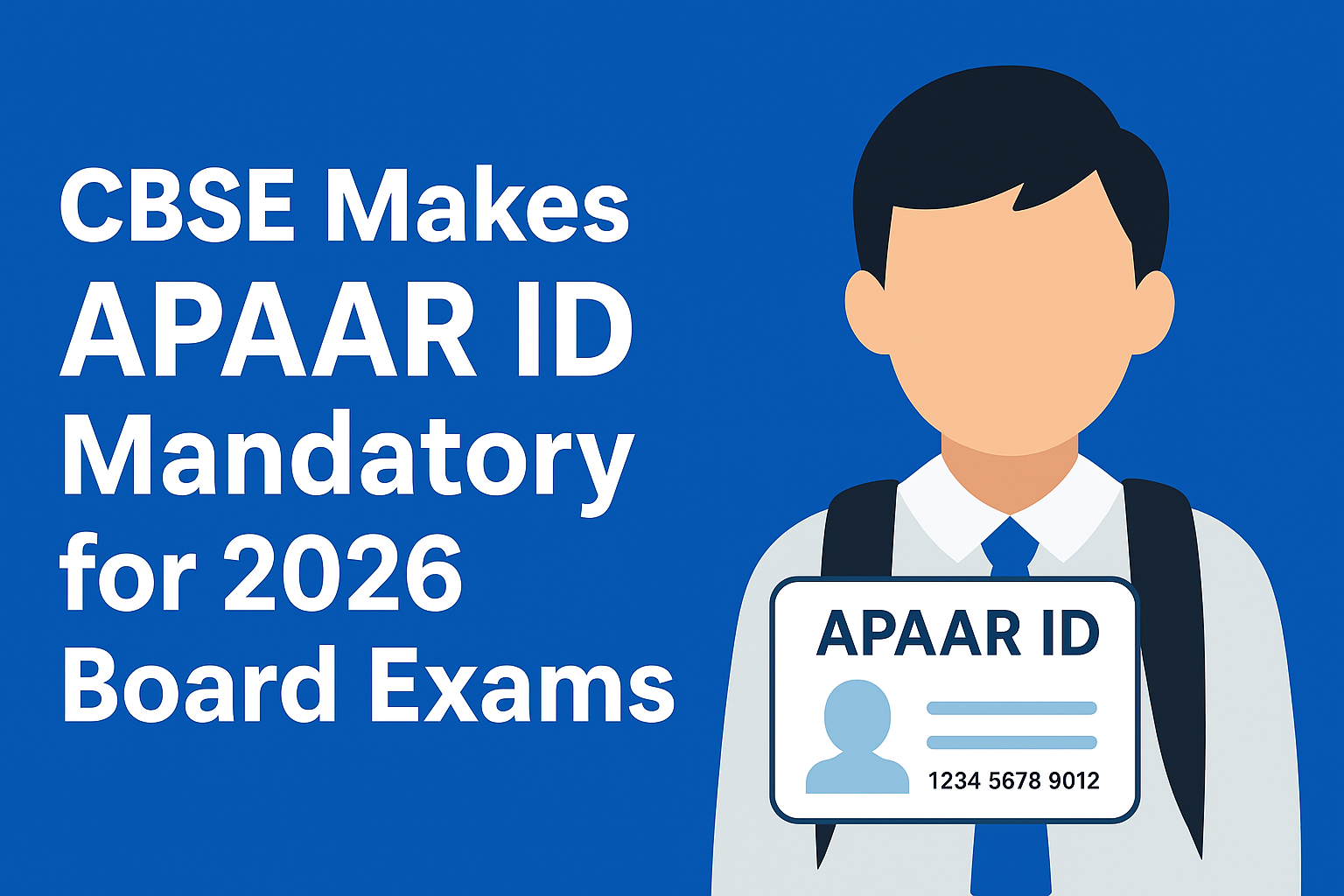
The Central Board of Secondary Education (CBSE) has announced a major update that will affect all students appearing for board exams in 2026. From now on, schools will need to use each student’s 12-digit APAAR ID during registration for Classes 9 and 11, as well as when submitting the final list of candidates for Classes 10 and 12 board exams.
This decision, announced after the CBSE governing body meeting in June 2025, is in line with the National Education Policy (NEP) 2020. The Automated Permanent Academic Account Registry, or APAAR ID, is part of the government’s push towards a “One Nation, One Student ID” initiative.
What is APAAR ID?
APAAR stands for Automated Permanent Academic Account Registry. It’s basically a permanent 12-digit identification number assigned to every student in India. The aim is to create a unified and accessible academic record that follows a student from school to college and beyond.
Think of it as an Aadhaar-like ID, but for education. It will store your achievements, marks, certificates, and other academic records in one place. Whether you move to another city, change schools, or join a new course, your APAAR ID will make sure your records remain intact and easily accessible.
Why is it being made mandatory now?
In the current CBSE system, students are registered in Classes 9 and 11 by their schools. This registration marks the start of their secondary and senior secondary academic journey. Later, in Classes 10 and 12, schools submit a “List of Candidates” (LOC) to confirm who will be appearing for the board exams.
Starting from the 2025-26 academic year, both these steps such as registration and LOC submission will require the student’s APAAR ID. This means that by the time a student reaches Class 9 or 11, they must already have their APAAR number.
The CBSE says this move will streamline data management, prevent duplication, and make academic records more transparent.
How will it work for students and schools?
- For students in Class 9 and 11 (2025-26 session): Your school will register you with CBSE using your APAAR ID.
- For students in Class 10 and 12: When your school submits the LOC, they will confirm your details through your APAAR ID.
- For schools: They must ensure all students have an APAAR ID before registration deadlines.
The CBSE chairman has emphasised that all stakeholders meaning school authorities, teachers, and students need to take this requirement seriously.
Benefits for the education system
- Unified records: Students’ academic details will be stored in a single, permanent database.
- Easy transfers: Changing schools or boards will be simpler, with no risk of losing documents.
- Better policy planning: Accurate data will help education authorities improve planning and resource allocation.
What should schools do now?
Schools should start the process of generating APAAR IDs for students who don’t have one yet. This involves collecting necessary details, ensuring accuracy, and uploading information to the official system.
Final Take
The introduction of APAAR ID is not just another administrative change. It’s a step towards a more organised, tech-driven education system in India. For students, it means less paperwork and more security for their academic records. For schools, it’s an opportunity to modernise processes.
If you’re entering Class 9 or 11 in 2025-26, check with your school right away to ensure your APAAR ID is ready because without it, you won’t be registered for your 2026 board exams.





















